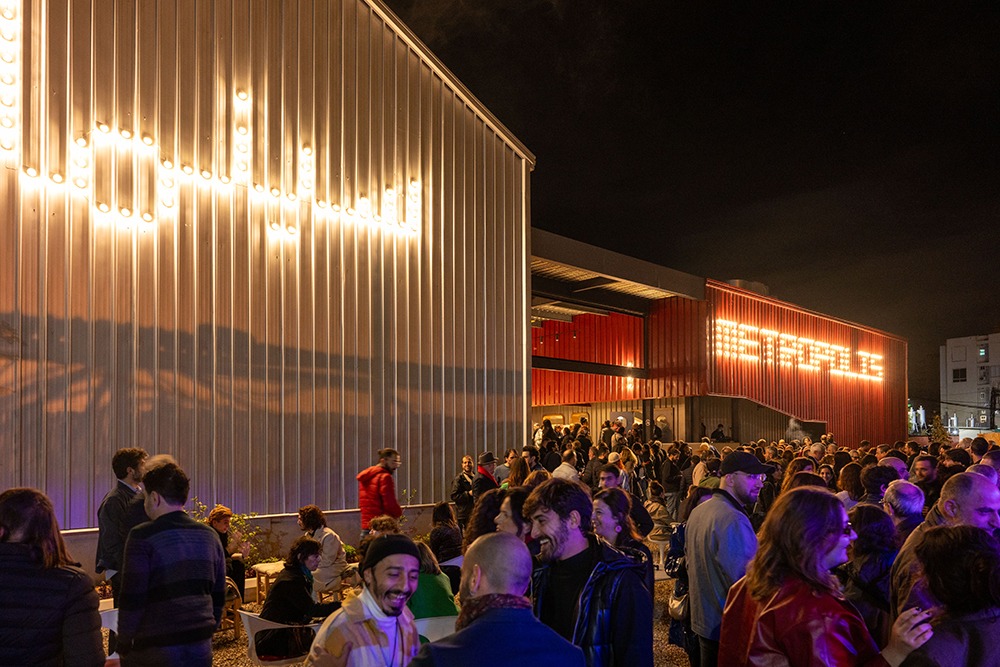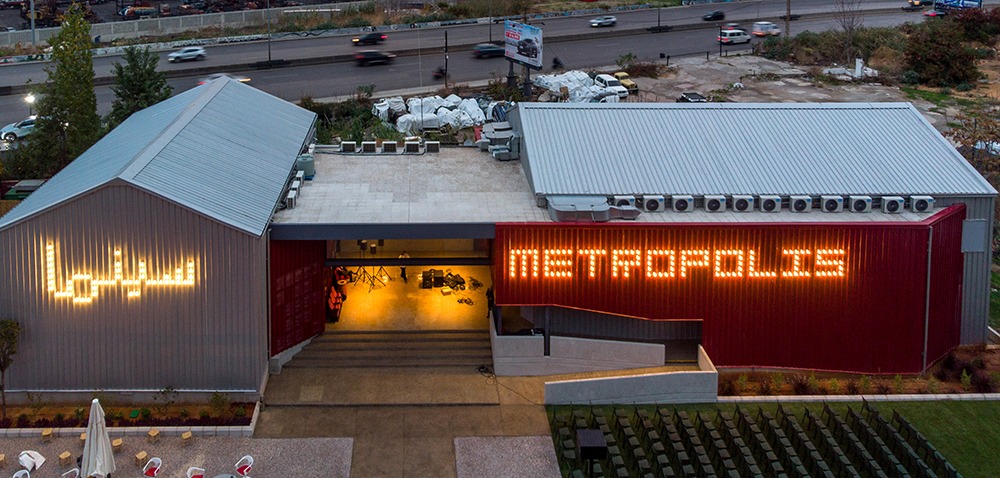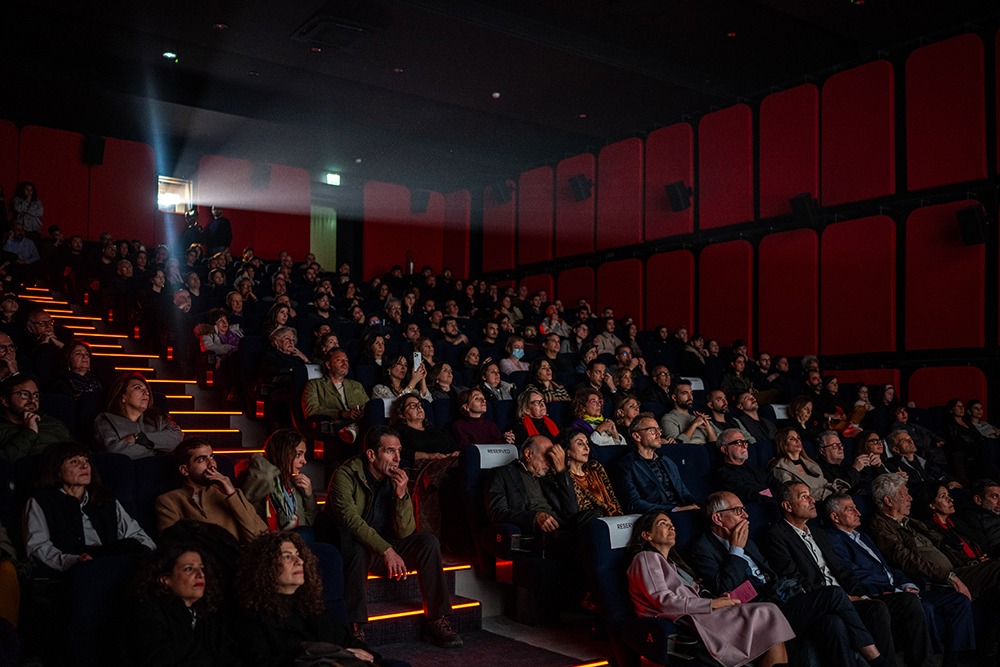A pioneering cultural hub dedicated to promoting independent cinema and supporting the Lebanese and regional film industry, Metropolis Cinema Beirut has remained committed to showcasing a diverse array of films, from local and regional productions to global cinematic gems. Through carefully curated programs, festivals and events, the organization fosters dialog, nurtures emerging talent, and makes cinema accessible to all. We spoke with Hania Mroue, director of The Metropolis Art Cinema Association, to hear about the cinema’s epic revival.
 What inspired the creation of Metropolis cinema and what is its core mission?
What inspired the creation of Metropolis cinema and what is its core mission?
The Metropolis Cinema Association, founded in 2006, is dedicated to promoting independent cinema in Lebanon through diverse programming, industry training, young audience outreach, and preservation of film heritage. At the core of Metropolis’ mission is the belief in cinema’s power to create communal spaces of shared experiences that allow discussions and new discoveries. We believe that cinema is an encounter, with a film, a story, a character, a different culture, a different language and a different way of thinking. The idea of creating a space dedicated to alternative cinema came from the desire to give access to audiences, particularly the youth, to the diversity of productions from around the world, at a time where only blockbusters were available in commercial cinemas and festivals contributed only punctually to developing cinephilia and cinema culture.
How does Metropolis contribute to the promotion of independent Lebanese and regional cinema?
During its 18 years of existence, the association’s programming has focused on disseminating films from across the world, with an emphasis on Lebanese and regional titles. Lebanon has witnessed an incredible rise in cinema production over recent decades, despite local and regional instability, a lack of funding or public support, and the multiple crises the country has endured. Nevertheless, the Lebanese film industry has managed to achieve international recognition and build a worldwide reputation for quality, creativity, and depth.
In recent years, we have also observed an increasing number of regional collaborations and co-productions, which have facilitated better circulation of Arab content across the region. Metropolis is committed to supporting this emerging industry by giving films the visibility they deserve through carefully curated programming and an emphasis on discussions following the screenings. For us, the encounters between filmmakers and audiences are key to fostering inspiring and thought-provoking debates, as well as building mutual trust and respect.
 What are some of the key challenges Metropolis has faced during Lebanon’s recent crises and how have you overcome them?
What are some of the key challenges Metropolis has faced during Lebanon’s recent crises and how have you overcome them?
Metropolis’ venue closed down in January 2020, shortly after the October revolution and the financial crisis that triggered it, and just before the Covid-19 pandemic shut down cinemas across the world. We found ourselves forced to find alternative ways to keep our programs running. First, we adopted a nomadic programming model, decentralizing our activities and using multiple spaces and outdoor venues throughout the country to continue presenting our film programs. This approach allowed us to reach an even wider audience, including those in remote cities and villages across Lebanon.
At the same time, we were preparing for the reopening of our physical space by working on building a new cinema — a venue designed to host our diverse programs, including film preservation, training sessions, children’s programs and more. This new space was informed by our years of experience managing an independent cinema.
The most challenging period came during the last war on Gaza and Lebanon. Not only did it affect us directly, like the rest of the Lebanese citizens, but it also impacted our project, slowing down construction, halting fundraising efforts and demoralizing our team. The only way to overcome this challenge was by persisting in our daily work on both the construction and programming, despite the surrounding violence. This became our way of defying the circumstances — with determination, faith in our country, and a strong belief in our cause.
How do you curate your film selection to ensure it reflects diverse perspectives and stories?
The year-round program is curated by a team of passionate programmers, each specializing in different areas of interest: documentaries, Arab cinema, classics, films for kids, world cinema and more. We design programs that target diverse audiences, with a particular focus on engaging youth. As such, student films, short films, experimental films and cine concerts play a significant role in our regular offerings.
We are constantly scouting for new and emerging voices through open calls that we often launch before major festivals to receive film submissions, as well as through our research to uncover hidden gems. Collaborations with other institutions, independent curators and film programmers are also essential to ensuring a diversity of perspectives in our programming.
In 2025, Metropolis aims to broaden its horizons by spotlighting more underrepresented cinemas from the global south, with a focus on African, Latin American and Asian cinema.
 What are your future plans for Metropolis Cinema and how can the community support its mission?
What are your future plans for Metropolis Cinema and how can the community support its mission?
Metropolis has been eager to reconnect with its audience after years without a physical space. The programming team has planned an array of film events for 2025, including trainings, workshops, masterclasses, professional encounters, a rich and diverse program for children, a summer festival and several retrospectives.
To ensure these events are accessible to all, some will be offered free of charge. Additionally, we are introducing membership cards to help reduce ticket prices. For those who wish to further support our mission, we invite them to join our Support Membership program or become part of the Friends of the Association circle.
What can guests expect from Doc SCREENS Ecrans film festival, which is currently taking place at Metropolis?
Doc Screens is a documentary film festival dedicated to showcasing significant contemporary productions from around the world. It is a non-competitive event, with no juries or awards, as the primary aim is to foster encounters, spark discussions and host thematic debates and panels that engage both audiences and filmmakers.
For its 19th edition, the festival proudly presents a rich and diverse selection of Lebanese films from the past two years, most of which are award-winning works, including both shorts and features. This edition also includes a special cine concert, “Palestine: A Revised Narrative,” where Cynthia Zaven and Rana Eid have collaborated on sound design and live music composition set to archival footage from Palestine dating back nearly a century.
For the first time, the festival is hosting a VR experience — a documentary presented as an immersive and interactive viewing experience — created by Cynthia Sawma and Martin Waehlisch. Additionally, as part of a collaboration with the REEF Festival in Qobeyat, we will screen a program of short films addressing environmental issues, followed by a discussion.
We are also excited to host an extended conversation with filmmaker Ghassan Salhab about his six-hour masterpiece documentary, “Contretemps.” The festival runs until 21 February 2025.
For more information on Metropolis cinema, visit the website or call +961 81 069 530.
If you enjoyed reading this article, check out our interview with Lebanese actor and film director Zeina Daccache.

